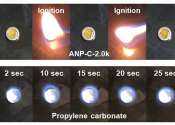Robot Spot configured to find and stun weeds using a blowtorch
A team of computer scientists and roboticists with members from Texas A&M University in the U.S., and the Mohamed Bin Zayed University of Artificial Intelligence in Abu Dhabi, working with a colleague from Boston Dynamics, ...









